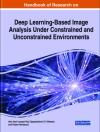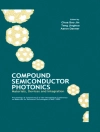Evaluating Production Efficiency in China examines production from engineering and statistics perspectives rather than from economics and mathematics perspectives. The authors present an observable benchmark as the criterion of the production efficiency to replace the unobservable production frontier surface. This book discusses several different computing technologies, controllable variable as a path of identification, changes in production efficiency by decision making on specific operating conditions, and optimal resource allocation. The book provides a channel to tap inside the success stories of China, exploiting the way of changes in production efficiency during China’s development in the past 30 years. This book examines the concepts and realization of production efficiencies across all areas of the economy. Also the book provides the perspective of foreign direct investment (FDI) absorption to identify how Chinese economy changes in production efficiency.
Зміст
Introduction.- Changes in Allocation Efficiency from Equity to Efficiency-Oriented.- Changes in Population Agglomeration Efficiency in Urban Planning.- Changes in Factors Scale Efficiency of FDI with Path Identification.- Changes in Technical Efficiency of FDI.- Changes in Scale and Technical Efficiency with Regional Transplantation Strategy.- Sustainable Efficiency in China with Urbanization.- Concluding Remarks.
Про автора
Dr. Bing Xu is a professor of Econometrics and Statistics at Zhejiang Gongshang University, China.
Dr Juying Zeng is a researcher of econometrics at Chinese Academy of Social Sciences, China.
Dr. Junzo Watada is a professor of Knowledge Engineering, Soft Computing and Management Engineering at Waseda University, Japan.












